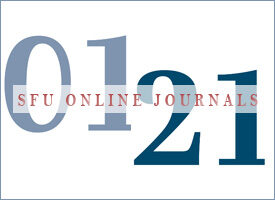Dear readers,
we are happy to present the latest issue of the SFU Research Bulletin to you.
This issue kicks-off with an article by Dennis Henkel, research assistant at the Institute for History and Ethics of Medicine at the University of Cologne, who has made a name for himself in the psychiatrically interested film community as an expert on silent films. In the text “Pathologising Isolation”, he discusses the film The Lighthouse (USA 2019), by Robert Eggers, and shows – by analysing the protagonists – which effects isolation can have on our mental health.
Text two, penned by Philipp Österreicher, a psychologist, psychotherapist and psychotherapy scientist, addresses “Idiopathic Nightmares and Emotional Processing Styles”. Nightmares are widespread phenomena and per se an unpleasant thing. An idiopathic nightmare, according to ICD-10, is a “dream experience full of anxiety and fear with a very detailed memory of the dream content.” What role emotion processing plays in this dream experience and much more is the subject of the text.
The third contribution by Nicolas Dermota, trust psychologist at the Austrian Embassy in Tokyo and Erzsébet Tóth, coordinator of the international doctoral programme in psychotherapy science at SFU, looks at the reality of life for “expats and migrants in Japan” and shows what it means to move one’s centre of life to another country.
“Depression, Psychotherapy and Change” is the topic of the fourth text, written by Maria Clara Jost, Clinical Psychologist, and Tommy Akira Goto, Professor of postgraduate studies in Philosophy and Psychology at the Universidade Federal de Uberandia (Brazil). Depression is one of the greatest challenges facing health care systems worldwide. This paper discusses and evaluates the ADI/TIP method of treatment to which the authors are committed.
Kurt Greiner, Professor of Psychotherapy Science at SFU, has once again provided one of his tried and tested cartooms (cartooment = argument + cartoon), this time on the topic “Psychotherapy science is text science”. Thank you, Kurt!
We would also like to thank the Institute for Statistics (SFU Faculty of Psychology), who in their third contribution in the Bulletin’s statistics series presented the use of procedures for comparing k-independent samples in the sense of a best practice approach.
We hope that there is something of interest for all our potential readers in this colourful issue.
We wish you a carefree and happy summer – enjoy reading!
Martin Poltrum, Editor
Contact:
Univ. Ass. Mag. Maria Gren, Sigmund Freud University Vienna
maria.gren@sfu.ac.at
